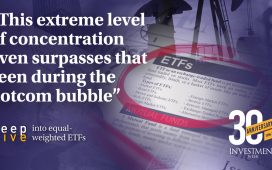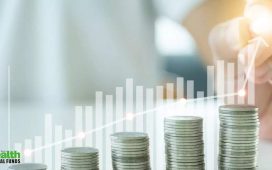Global stock markets have been falling sharply for a second day running after Donald Trump’s announcement that the US planned to charge tariffs on goods from around the world. A global trade war intensified when China responded on Friday by announcing tariffs of 34% on imports of US goods, accelerating the market sell-off. For people in the UK, there are reasons to be concerned about the falls:
Should I worry if I don’t own stocks and shares?
Even if you have never bought stocks and shares directly, or a fund, you may have a pension that invests in them. Workplace pension schemes – whether public or private sector – hold a lot of money in the stock markets. If you have a scheme that pays out a figure depending on the performance of those investments, you could be affected (see below).
The downturn in the markets gives companies less money to invest, and it signals concern over the future of the economy, so it suggests companies could batten down the hatches and decide not to take risks or expand, which will be bad for jobs. There could also be redundancies if companies become concerned about future costs.
Sarah Coles, the head of personal finance at the advice firm Hargreaves Lansdown, points out that the government is relying on growth to make its sums add up, and falling markets could hit this plan.
“[The government] needs a healthy economy to bring in enough tax revenue to stay within its tax rules,” she says. “If we don’t get this growth – and if the economy starts shrinking – it could open up a new black hole in the finances. It would then mean either borrowing more and breaking the rules, spending less, or raising taxes.”
What does it mean for pensions?
Pension funds invest in stock markets, alongside other assets, to generate money to pay out. If you are in a defined contribution scheme, as many workers are, how much your individual pension is worth will depend on the performance of the investments.
As you approach retirement, unless you have chosen otherwise, your scheme will usually start moving you into less risky assets, so you may not have much exposure to the market. However, if your scheme is in the process of doing this for you, you could be moving at the wrong time.
Helen Morrissey, the head of retirement analysis at Hargreaves Lansdown, says people who may have planned to start selling investments to draw down money from their pension may choose to put this off until the situation is more settled.
She says those investing in a pension should not panic. “Making kneejerk reactions such as changing investment strategy or cutting back on contributions can crystallise losses and make it harder for your fund to recover, and this can impact your retirement income. It’s important to make sure that your strategy is well diversified to protect your pension from these ups and downs.”
What should I do if I have other investments?
Again, the message from experts is not to panic. Unless you have a need to sell your stocks and shares, or holdings in funds, you will not have lost any money. If you can stay put until prices recover, you will be back as you were.
“Selling out in fear can be the worst thing to do,” says Rob Morgan, the chief investment commenter at the stockbroker Charles Stanley. “Large falls can be followed by large rises, so you risk losing on both sides – selling when prices are depressed and not buying in until they have moved higher.”
You will also miss out on any income your investment will have paid, he says. “In the absence of a crystal ball, keeping invested is often the best strategy, no matter how uncomfortable.”
It is a good time to check that you have a diverse range of investments, as this will protect you if there are big falls in one particular sector or country.
Is it a buying opportunity?
If you are a regular investor, paying in every month, you could end up benefiting from the falls in the long run. You will be getting more for your money and, if the market recovers, your investments will go up in value.
However, it is unclear how long markets will remain volatile, and no one can accurately predict how far they might fall before a recovery. Timing investments is really tricky and if you put in a lump sum now, you might see it go down in value and stay there for some time.







